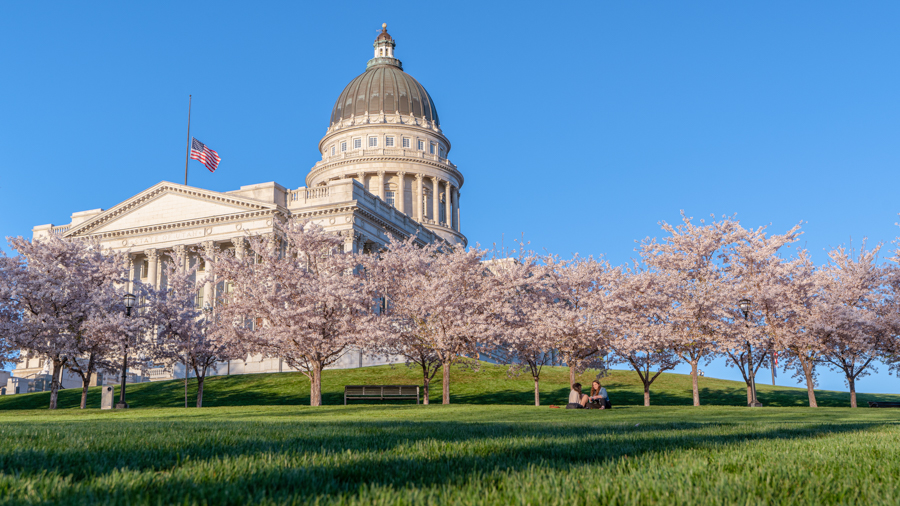Amid a Pandemic, Utah Lawmakers Gather to Begin the 2021 Utah Legislative Session
Utah State Capitol on April 2, 2020. (Photo by Abu Asib | The Daily Utah Chronicle)
January 28, 2021
This article was originally published in the January 2021 print edition.
On Jan. 19, Utah lawmakers convened at the state capitol to start the 2021 Utah legislative session, lasting 45 days. Because of COVID-19, this year’s legislative session will look different from past years because of social distancing and limited face-to-face interaction with the public.
State Sen. Luz Escamilla shared how the pandemic has largely impacted the way legislators interact with the public. Escamilla stated before the pandemic, the Utah capitol was open to the public, allowing citizens to attend meetings and interact with legislators face-to-face.
Despite the limited interaction, Escamilla said the pandemic has not negatively impacted how she interacts with voters in her district.
“The vast majority of the voter [interaction] is usually via email or text. That has not changed, and we’re getting our influx of emails,” Escamilla said.
The Utah public can now join committee meetings virtually via Zoom by going to le.utah.gov, where citizens can listen in and make public comments.
“Before, you could [only] listen to the meetings online, but now they can actually participate online. So if anything, I think the public may see a little more access in that sense,” Escamilla said.
During his opening day speech, Senate president Stuart Adams shared with citizens the new option to virtually attend meetings so more Utahns can participate.
“Moms and dads who cannot leave their children at home can now participate. Working individuals who cannot leave their 9 to 5 job can now participate. Rural Utahns who live six hours away can now participate. Those who have never been part of the legislative process before, this is your year,” Adams said.
Thaiss Del Rio, an intern for Escamilla and U senior, shared wearing masks and social distancing while working at the capital was a major change.
“The majority of our meetings are now held virtually. In the past [meetings] would be in person, right, so it’s a huge shift in that arena as well,” said Del Rio.
Escamilla encouraged the public to continue using technology to contact legislators and stressed the importance of voters letting their voices be heard.
“We want to hear from everyone. We all have a vested interest to see the state move forward in a good way, and it requires all the voices to be represented. And if the people don’t speak sometimes, those voices get ignored,” Escamilla said.
Del Rio shared it is important for citizens to be involved in their communities and local government and emphasized the importance of legislators representing all communities.
“I feel… we tend to overlook the role of our local government. I think… we focus too much on the federal government, and we don’t really recognize how huge of an impact the decisions our local government makes, and how that really impacts us,” Del Rio said.
Del Rio added citizens could be more involved through getting to know and contacting their representatives and being involved in community organizations.
Escamilla shared bills involving police reform, COVID-19 relief, education, and tax reform will be presented during this year’s legislative session.
“[Police reform] is something we’ve been discussing during the summer… There’s been a lot of conversations with law enforcement and legislators, and stakeholders throughout the summer, and fall, and winter. I’m encouraged to see the many, many pieces of legislation moving that way,” she said.
Escamilla added education is always a top priority, and Utahns can expect a lot of legislative regarding COVID-19 response.








